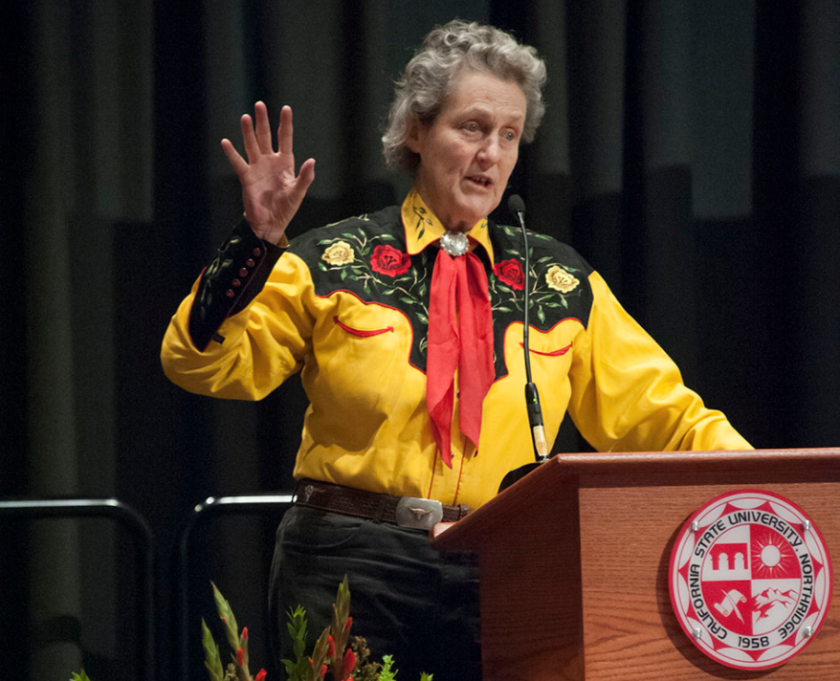"A well-known figure within the autistic community, Grandin was diagnosed with autism when she was four, and doctors recommended she should be institutionalized. Her parents refused to follow the advice, and helped Grandin to develop her speaking ability. As one of the first people to talk about their own experiences with autism and how it affects them, Grandin was able to develop many innovations to help those with autism, such as the hug box, a deep-pressure device designed to calm hypersensitive people. She was also the subject of the decorated HBO biopic, Temple Grandin, which details how she used her perspective with autism to rise to prominence in the field of animal science.
The lecture was preceded by an introduction from Special Education Professor Wendy Murawski, who was joined on stage by a number of people whose lives had been affected by autism. Among them was Matador alumnus Tom Island, who explained how Grandin’s work had inspired him to step away from his job in corporate America to become an advocate for those with autism.
The lecture focused primarily on the different types of thinkers that the world produces today, and society’s tendency to practice label-locked learning, whereby each student is sorted by what they cannot do, instead on how to build upon their strengths. Grandin spoke about how accommodating every individual through unique, case-by-case education could yield some of the greatest minds of this generation. She used many famous examples, such as Thomas Edison, Elon Musk and Steven Spielberg, all of whom exhibited traits of autism, and did not function well in the traditional education system, to demonstrate how these thinkers go on to achieve great success if they are given the right tools.
"Do not confuse process with the goal,” Grandin said. “I think sometimes in education we get so caught up with the process, we have forgotten about the goal. On my campus, they’re finishing up construction on a brand-new biology building. One part of it has a concrete frame, and the other has a steel frame. But it doesn’t matter what their foundations look like. They’re going to create a super nice building. That’s what really matters!”"
Read the full article from CSUN Today here.




